- Home
- Vladimir Nabokov
The Gift Page 7
The Gift Read online
Page 7
“I haven’t got anything with me, and I don’t know anything by heart,” Fyodor repeated several times.
Chernyshevski quickly turned to him and put his small hairy hand on his sleeve. “I have a feeling you are still cross with me. You’re not? Word of honor? I realized afterwards what a cruel joke it was. You don’t look well. How are things going? You never really did explain to me why you changed your lodgings.”
He explained: at the boardinghouse where he had lived for a year and a half people he knew had suddenly moved in, very kind, innocently intrusive bores who kept “dropping in for a chat.” Their room was near his and before long Fyodor had the feeling that the wall between them had crumbled and he was defenseless. Of course, in the case of Yasha’s father no change of residence could possibly have helped.
Vasiliev had got up. Whistling softly, his huge back bent slightly, he was examining the books on the shelves; he pulled one out, opened it, stopped whistling and, wheezing instead, began reading the first page to himself. His place on the couch was taken by Lyubov Markovna and her large purse: now that her tired eyes were naked, her expression grew softer, as with a seldom humored hand she stroked the golden back of Tamara’s head.
“Yes!” Vasiliev said abruptly, slamming the book shut and cramming it into the first available opening. “All things in the world must end, comrades. As for me, I must get up at seven tomorrow.”
Engineer Kern took a look at his wrist.
“Oh, stay a while longer,” said Mme. Chernyshevski, her blue eyes beaming imploringly, and turning to the engineer, who had risen and stood behind his empty chair which he slightly moved to one side (thus a Russian merchant who has drunk his fill of tea might turn his glass upside down on its saucer), she started talking about the lecture he had agreed to deliver at the next Saturday meeting—its title was “Alexander Blok in the War.”
“I put ‘Blok and War’ on the announcements by mistake,” she said, “but it doesn’t make any difference, does it?”
“On the contrary, it certainly does make a difference,” replied Kern with a smile on his thin lips, but with murder behind his thick eyeglasses, without unclasping his hands which were joined on his abdomen. “ ‘Blok in the War’ conveys the proper meaning—the personal nature of the speaker’s own observations, while ‘Blok and War,’ if you will excuse me, is philosophy.”
And now they all began gradually to grow less distinct, to ripple with the random agitation of a fog, and then to vanish altogether; their outlines, weaving in figure-eight patterns, were evaporating, though here and there a bright point still glowed—the cordial glint in an eye, the gleam of a bracelet; there was also a momentary reappearance of the intently furrowed forehead of Vasiliev, who was shaking somebody’s already dissolving hand, and at the very last there was a floating glimpse of pistachio-colored straw, decorated with silk roses (Lyubov Markovna’s hat), and now everything was gone, and into the smoky parlor, without a sound, in his bedroom slippers, came Yasha, thinking that his father had already retired, and with a magic tinkling, by the light of crimson lanterns, dim beings were repairing the pavement at the corner of the square, and Fyodor, who did not have money for the streetcar, was walking home. He had forgotten to borrow from the Chernyshevskis those two or three marks that would have tided him over until he got paid for a lesson or translation: this thought alone would not have disturbed him had he not been possessed by a general feeling of wretchedness consisting of that rotten disappointment (he had imagined so vividly the success of his book), and a chill leak in his left shoe, and fear of the imminent night in a new place. He was tired, he was dissatisfied with himself for wasting the tender beginning of the night, and he was tormented by the feeling that there was some line of thought he had not pursued to its conclusion that day and now could never finish.
He was walking along streets that had already long since insinuated themselves into his acquaintance—and as if that were not enough, they expected affection; they had even purchased in advance, in his future memories, space next to St. Petersburg, an adjacent grave; he walked along these dark, glossy streets and the blind houses retreated, backing or sidling into the brown sky of the Berlin night, which, nevertheless, had its soft spots here and there, spots that would melt under one’s gaze, allowing it to obtain a few stars. Here at last is the square where we dined and the tall brick church and the still quite transparent poplar, resembling the nervous system of a giant; here, also, is the public toilet, reminiscent of Baba Yaga’s gingerbread cottage. In the gloom of the small public garden crossed obliquely by the faint light of a streetlamp, the beautiful girl who for the last eight years had kept refusing to be incarnated (so vivid was the memory of his first love), was sitting on a cinder-gray bench, but when he got closer he saw that only the bent shadow of the poplar trunk was sitting there. He turned into his street, plunging in it as in cold water—he was so loath to go back, such melancholy was promised him by that room, that malevolent wardrobe, that daybed. He located his front door (disguised by darkness) and pulled out his keys. None of them would open the door.
“What’s this …” he muttered crossly, looking at the key bit, and then furiously began jamming it in again. “What the hell!” he exclaimed and retreated one step in order to throw back his head and make out the house number. Yes, it was the right house. He was just about to bend over the lock once more when a sudden truth dawned upon him: these were, of course, the boardinghouse keys, which he had carried away in his raincoat pocket by mistake when he moved today, and the new ones must have remained in the room that he now wanted to get into much more than a moment ago.
In those days Berlin janitors were for the most part opulent bullies who had corpulent wives and belonged, out of petty bourgeois considerations, to the Communist Party. White Russian tenants quailed before them: accustomed to subjection, we everywhere appoint over ourselves the shadow of supervision. Fyodor understood perfectly well how stupid it was to be afraid of an old fool with a bobbing Adam’s apple, but still he could not bring himself to wake him up after midnight, to summon him up out of his giant featherbed, to perform the act of pushing the button (even though it was more than likely that no one would answer, squeeze as he might); he could not bring himself to do it, especially because he did not have that ten-pfennig coin without which it was unthinkable to walk past the palm, grimly cupped at hip level, confident of receiving its tribute.
“What a mess, what a mess” he whispered, stepping away and feeling, from behind, the weight of a sleepless night settling on him from head to heels, a leaden twin whom he must carry somewhere or other. “How stupid, kak glupo,” he added, pronouncing the Russian glupo with a soft French “I” as his father used to do in a mildly jocular absentminded way, when perplexed.
He wondered what to do next. Wait for somebody to come out? Try to find the black-caped night watchman who looked after door locks on residential streets? Force himself after all to blow up the house by ringing the bell? Fyodor began pacing the sidewalk to the corner and back. The street was echoic and completely empty. High above it milk-white lamps were suspended, each on its own transverse wire; beneath the closest one a ghostly circle swung with the breeze across the wet asphalt. And this swinging motion, which had no apparent relation to him, with a sonorous tambourine-like sound nevertheless nudged something off the brink of his soul where that something had been resting, and now, no longer with the former distant call but reverberating loudly and close by, rang out “Thank you, my land, for your remotest …” and immediately, on a returning wave, “most cruel mist my thanks are due.…” And again, flying off in search of an answer: “… by you unnoticed.…” He was somnambulistically talking to himself as he paced a nonexistent sidewalk; his feet were guided by local consciousness, while the principal Fyodor Konstantinovich, and in fact the only Fyodor Konstantinovich that mattered, was already peering into the next shadowy strophe, which was swinging some yards away and which was destined to resolve itself in a yet-unknown but
specifically promised harmony. “Thank you, my land …” he began again, aloud, gathering momentum afresh, but suddenly the sidewalk turned back to stone under his feet, everything around him began speaking at once, and, instantly sobered, he hurried to the door of his house, for now there was a light behind it.
A middle-aged woman with high cheekbones, a karakul jacket over her shoulders, was letting a man out and had paused together with him at the door. “So don’t forget to do it, dear,” she was saying in a drab, everyday voice, when Fyodor arrived grinning and immediately recognized her: that morning she and her husband had been meeting their furniture. But he also recognized the visitor who was being let out—it was the young painter Romanov, whom he had run into a couple of times at the editorial offices of the Free Word. With an expression of surprise on his delicate face, whose Hellenic purity was spoiled by dull, crooked teeth, he greeted Fyodor; the latter awkwardly bowed to the lady, who was rearranging the jacket slipping from her shoulder, and then bounded up the stairs with enormous strides, tripped horribly at the bend and climbed on holding the banister. Bleary-eyed Frau Stoboy in her dressing gown was awesome, but that did not last long. In his room he groped for the light and found it with difficulty. On the table he saw the glistening keys and the white book. That’s already all over, he thought. Such a short time ago he had been giving copies to friends with pretentious or platitudinous inscriptions and now he was ashamed to recall those dedications and how all these last few days he had been nurtured by the joy of his book. But after all, nothing much had happened: today’s deception did not exclude a reward tomorrow or after tomorrow; somehow, however, the dream had begun to cloy and now the book lay on the table, completely enclosed within itself, delimited and concluded, and no longer did it radiate those former powerful, glad rays.
A moment later, in bed, just as his thoughts had begun to settle down for the night and his heart to sink in the snow of slumber (he always had palpitations when falling asleep), Fyodor ventured imprudently to repeat to himself the unfinished poem—simply to enjoy it once more before the separation by sleep; but he was weak, and it was strong, twitching with avid life, so that in a moment it had conquered him, covered his skin with goose pimples, filled his head with a heavenly buzz, and so he again turned on the light, lit a cigarette, and lying supine, the sheet pulled up to his chin and his feet protruding, like Antokolski’s Socrates (one toe lost to Lugano’s damp), abandoned himself to all the demands of inspiration. This was a conversation with a thousand interlocutors, only one of whom was genuine, and this genuine one must be caught and kept within hearing distance. How difficult this is, and how wonderful.… And in these talks between tamtambles, tamtam my spirit hardly knows.…
After some three hours of concentration and ardor dangerous to life, he finally cleared up the whole thing, to the last word, and decided that tomorrow he would write it down. In parting with it he tried reciting softly the good, warm, farm-fresh lines:
Thank you, my land; for your remotest
Most cruel mist my thanks are due.
By you possessed, by you unnoticed,
Unto myself I speak of you.
And in these talks between somnambules
My inmost being hardly knows
If it’s my demency that rambles
Or your own melody that grows.
And realizing only now that this contained a certain meaning, he followed it through with interest and approved it. Exhausted, happy, with ice-cold soles (the statue lies half-naked in a gloomy park), still believing in the goodness and importance of what he had performed, he got up to turn off the light. In his torn nightshirt, with his skinny chest and long turquoise-veined, hairy legs exposed, he dawdled by the mirror, still with that same solemn curiosity examining and not quite recognizing himself, those broad eyebrows, that forehead with its projecting point of close-cropped hair. A small vessel had burst in his left eye and the crimson invading it from the canthus imparted a certain gypsy quality to the dark glimmer of the pupil. Goodness, what a growth on those hollow cheeks after a few nocturnal hours, as if the moist heat of composition had stimulated the hair as well! He turned the switch, but most of the night had dissolved and all the pale and chilled objects in the room stood like people come to meet someone on a smoky railroad platform.
For a long time he could not fall asleep: discarded word-shells obstructed and chafed his brain and prickled his temples and there was no way he could get rid of them. Meanwhile the room had grown quite light and somewhere—most likely in the ivy—crazy sparrows, all together, not listening to each other, shrilled deafeningly: big recess in a little school.
Thus began his life in his new hole. His landlady could not get used to his habits of sleeping till noon, lunching none knew how or where, and dining off greasy wrapping paper. His book of poems did not get any reviews after all (somehow he had assumed it would happen automatically and had not even taken the trouble of sending out review copies), except for a brief note in Vasiliev’s Gazeta, signed by the financial correspondent, who expressed an optimistic view of his literary future and quoted one stanza with a deadly misprint. He came to know Tannenberg Street better and it yielded him all its fondest secrets: such as the fact that next door in the basement lived an old shoemaker by the name of Kanarienvogel and there actually was a bird cage, although minus its yellow captive, in his purblind window, among samples of repaired footwear; but as for Fyodor’s shoes, the cobbler looked at him over the top of the steel-rimmed spectacles of his guild and refused to repair them; so Fyodor started thinking of buying a new pair. He also learned the name of the upstairs tenants: having zoomed one day by mistake to the top landing, he read on a brass nameplate Carl Lorentz, Geschichtsmaler, and one day Romanov, whom he met at a street corner and who shared a studio in another part of the city with the Geschichtsmaler, told Fyodor a few things about him: he was a toiler, a misanthrope and a conservative, who had spent his whole life painting parades, battles, the imperial phantom with his star and ribbon, haunting the Sans-Souci park—and who now, in the uniformless republic, was impoverished and begloomed. He had enjoyed before 1914 a distinguished reputation, had visited Russia to paint the Kaiser’s meeting with the Tsar, and while wintering in St. Petersburg had met his present wife, Margarita Lvovna, who was at the time a young and enchanting dilettante who dabbled in all the arts. His alliance in Berlin with the Russian émigré painter had begun by accident, as a result of a newspaper advertisement. This Romanov was of quite a different cut. Lorentz developed a sullen attachment to him, but since the day of Romanov’s first exhibition (in which he showed his portrait of Countess d’X, stark naked with corset marks on her stomach, holding her own self diminished to one-third life-size) had considered him a madman and a swindler. Many, however, were captivated by the young artist’s bold and original gift; extraordinary successes were predicted for him and some even saw in him the originator of a neonaturalist school: after passing through all the trials of so-called modernism, he was said to have arrived at a renovated, interesting and somewhat cold narrative art. In his early works a certain trace of the cartoonist’s style was still evident—for example, in that thing of his called “Coincidence,” where, on an advertising post, among the vivid, remarkably harmonious colors of playbills, astral names of cinemas and other transparent motley, one could read a notice about a lost diamond necklace (with a reward to the finder), which necklace lay right there on the sidewalk, at the very foot of the post, its innocent fire sparkling. In his “Autumn,” though, the black tailor’s dummy with its ripped side, dumped in a ditch among magnificent maple leaves, was already expressiveness of a purer quality; connoisseurs found in it an abyss of sadness. But his best work to date remained one that had been acquired by a discerning tycoon and had already been extensively reproduced, called “Four Citizens Catching a Canary”; all four were in black, broad-shouldered, tophatted (although for some reason one of them was barefoot), and placed in odd, exultant and at the same time wary poses beneath
the strikingly sunny foliage of a squarely trimmed linden tree in which hid the bird, perhaps the one that had escaped from my shoemaker’s cage. I was obscurely thrilled by Romanov’s strange, beautiful, yet venomous art; I perceived in it both a forestalling and a forewarning: having far outdistanced my own art, it simultaneously illuminated for it the dangers of the way. As for the man himself, I found him boring to the point of revulsion—I could not stand his extremely rapid, extremely lisping speech, accompanied by a totally irrelevant, automatic rolling of his shining eyes. “Listen,” he said, spitting at my chin, “why don’t you let me introduce you to Margarita Lorentz—she has told me to bring you over some night—do come, we hold little soirées at the studio—you know, with music, sandwiches, red lampshades—a lot of young people come—the Polonski girl, the Shidlovski brothers, Zina Mertz.…”
These names were unknown to me; I felt no desire to spend evenings in the company of Vsevolod Romanov, nor did Lorentz’s pug-faced wife interest me in any way—so not only did I not accept the invitation, but since that time I began avoiding the artist.
In the morning the potato-hawker’s cry “Prima Kartoffel!” rang out in the street, in a high, disciplined singsong (but how the young vegetable’s heart throbs!) or else a sepulchral bass proclaimed “Blumenerde!” The thump of rugs being beaten was sometimes joined by a hurdy-gurdy, which was painted brown and mounted on squalid cart wheels, with a circular design on its front depicting an idyllic brook; and cranking now with his right hand, now with his left, the sharp-eyed organ-grinder pumped out a thick “O sole mio.” That sun was already inviting me into the square. In its garden a young chestnut tree, still unable to walk alone and therefore supported by a stake, suddenly came out with a flower bigger than itself. The lilacs, however, did not bloom for a long time; but when they finally made up their mind, then, within one night, which left a considerable number of cigarette butts under the benches, they encircled the garden with ruffled richness. In a quiet lane behind the church the locust trees shed their petals on a gray June day, and the dark asphalt next to the sidewalk looked as if cream of wheat had been spilled on it. In the rose beds around the statue of a bronze runner the Dutch Glory disengaged the corners of its red petals and was followed by General Arnold Janssen. One happy and cloudless day in July, a very successful ant flight was staged: the females would take to the air, and the sparrows, also taking to the air, would devour them; and in places where nobody bothered them they kept crawling along the gravel and shedding their feeble prop-room wings. From Denmark the papers reported that as a result of a heat wave there, numerous cases of insanity were being observed: people were tearing off their clothes and jumping into the canals. Male gypsy moths dashed about in wild zigzags. The lindens went through all their involved, aromatic, messy metamorphoses.

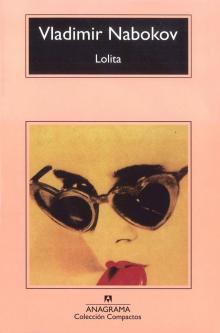 Lolita
Lolita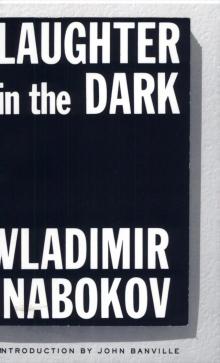 Laughter in the Dark
Laughter in the Dark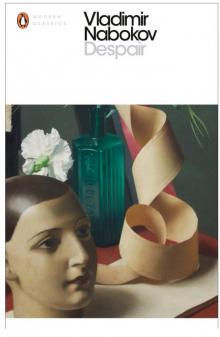 Despair
Despair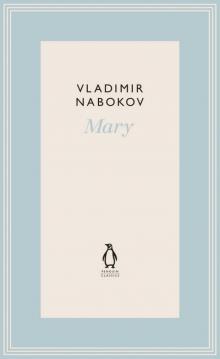 Mary
Mary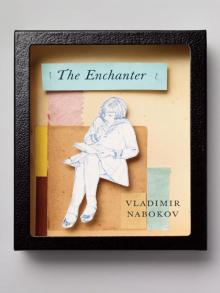 The Enchanter
The Enchanter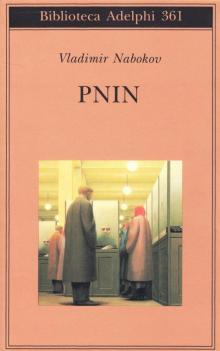 Pnin
Pnin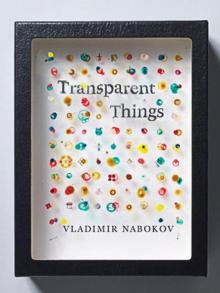 Transparent Things
Transparent Things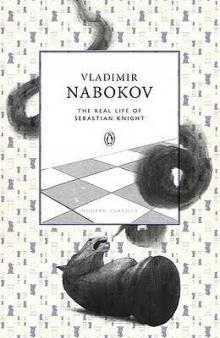 The Real Life of Sebastian Knight
The Real Life of Sebastian Knight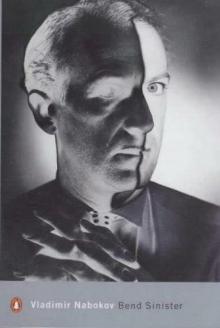 Bend Sinister
Bend Sinister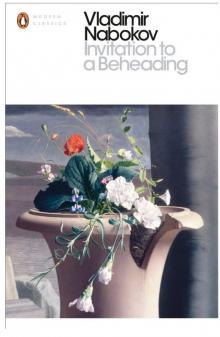 Invitation to a Beheading
Invitation to a Beheading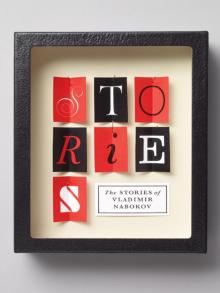 The Stories of Vladimir Nabokov
The Stories of Vladimir Nabokov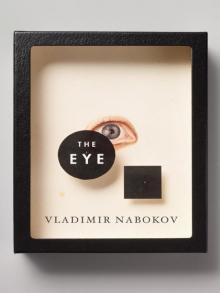 The Eye
The Eye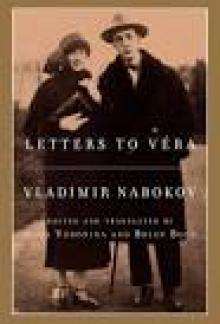 Letters to Véra
Letters to Véra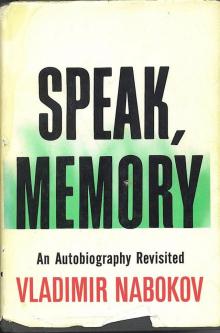 Speak, Memory
Speak, Memory The Gift
The Gift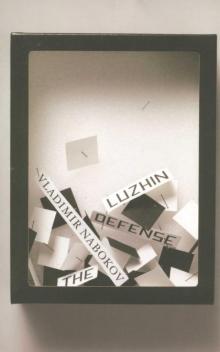 The Luzhin Defense
The Luzhin Defense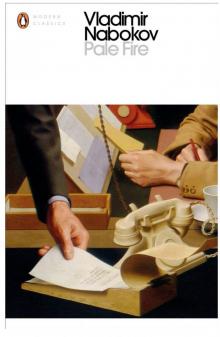 Pale Fire
Pale Fire Glory
Glory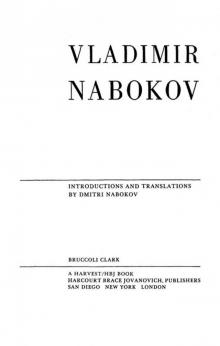 Man From the USSR & Other Plays
Man From the USSR & Other Plays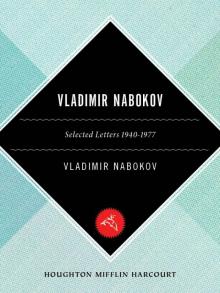 Vladimir Nabokov: Selected Letters 1940-1977
Vladimir Nabokov: Selected Letters 1940-1977 Strong opinions
Strong opinions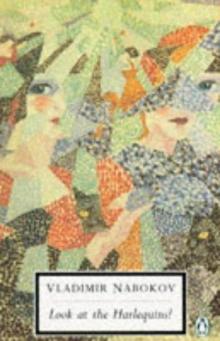 Look at the Harlequins!
Look at the Harlequins!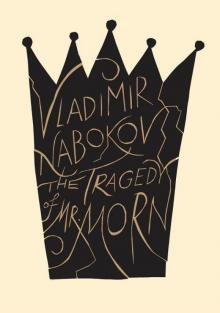 The Tragedy of Mister Morn
The Tragedy of Mister Morn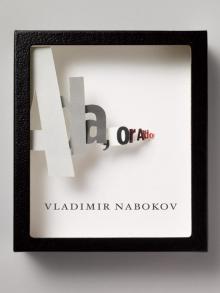 Ada, or Ardor
Ada, or Ardor Lectures on Russian literature
Lectures on Russian literature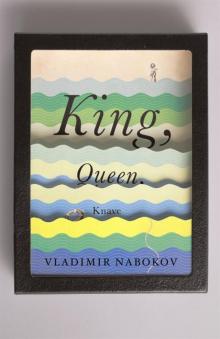 King, Queen, Knave
King, Queen, Knave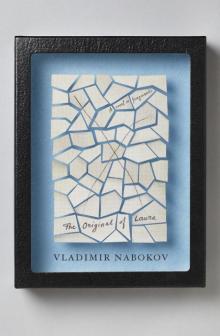 The Original of Laura
The Original of Laura